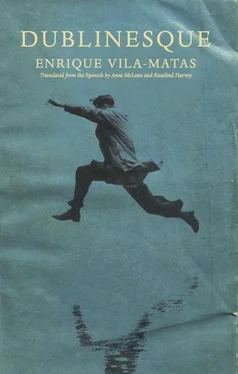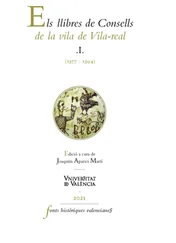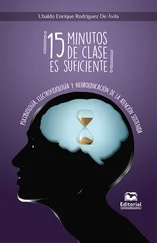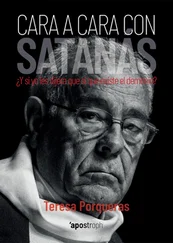“Leave,” the house said to him.
And he stayed in the rocking chair, half terrified, half obligingly, and even pretending that the painting of the stairway really had trapped him.
But as evening fell, as if he’d suddenly remembered that when it gets dark we all need someone, he got his strength back and began to move around the house, almost frenetically, until this unexpected restlessness ended up taking him all the way outside, where he trusted a stroke of luck would lead him to Celia, perhaps still walking round and round Dublin dragging her suitcase, in search of some society for the protection of Buddhists.
But it was he who started walking in circles, confused and lost in the city, bewildered, desperate. A nagging idea kept coming back to him of converting to Judaism — his mother’s former religion, after all — so Celia would see he’d taken a spiritual turn in his life. But most likely it was all futile. Celia had probably actually left the island by now.
He walked sadly along gay Grafton Street, stopping in front of all the shops with their awnings out. He took grievous delight in the muslin prints and silks, the young people from all over the world, the jingling of harnesses, the still echoing hoofthuds from bygone days lowringing in the baking causeway. He passed, dallying in front of the display windows of Brown Thomas, the venerable shop with its cascades of ribbons and flimsy China silks. He saw the grand house where Oscar Wilde spent his childhood, and then walked to the house where Bram Stoker, the creator of Dracula, lived for so many years. For a while, he could be seen walking along, ghostlike, as if he were one of those fellows that turned up so often in some of the most celebrated novels he published: those poor desperate romantics, always alone and without any direction or God, sleepwalking down lost highways.
On O’Connell Bridge he remembered that no one ever crosses it without seeing a white horse. He crossed it and didn’t see anything. There was a white pigeon perched on O’Connell’s head. But obviously a pigeon was not what he was looking for. “I feel ridiculous like this, without a white horse,” he thought. And he retraced his steps. On Grafton Street, with patriotic fervor, he heard a street band playing “Green Fields of France,” the ballad about the soldier Willie McBride. His Irish patriotism suddenly blended with an abrupt nostalgia for France, and the combination was stimulating. After that he spent a long time in the bar of the Shelbourne Hotel, and thought of phoning Walter from there, or Julia Piera, his Dublin contacts, but he didn’t have the nerve. After all, he wasn’t that close to them, and besides, he didn’t think they could help him on the subject of Celia’s departure. He could also call the two Irish writers he’d published years ago and who’d drunk his entire wine cellar dry, Andrew Breen and Derek Hobbs, but he remembered in time that he wouldn’t be able to communicate with them. That day at his house, it had been Gauger who’d looked after the two restless Irishmen.
At 27 St. Stephen’s Green, a few yards from the street where Dracula’s creator had lived, he gave in to alcohol again. In the great bar of the Shelbourne Hotel, he unexpectedly dracularized himself with four shots of whiskey. Through the window overlooking the street he followed, bloodymindedly, the progress of a miserable godforsaken cat, with no owner. . no author, no novice, no wife. For a while, the alley cat was him. He was a cat deep in spiritual and physical discomfort. He had a little straw hat tied on his head, making it quite clear he’d had an owner until very recently. As he walked he shook his paws, which were very wet. Riba followed his progress feeling like he wanted to bite his neck. Bite himself? Once again, alcohol had left its mark on him. He decided to leave, to go back to hiding out in his rocking chair because he couldn’t risk running into Celia in one of these two places and her seeing him in that state again.
He phoned his parents in Barcelona.
“So you’ve been to Dublin,” his mother said.
“I’m still there, Mama!”
“And what are your plans now?”
That damned question about his plans again. The question had already taken him very far once before, to where he is now. Dublin.
“I’m going to Cork because there’s a revelation waiting for me there,” he told her. “I’m hoping to talk to Celia’s former lover.”
“Isn’t he dead?”
“You know perfectly well, Mama, that a little detail like that means absolutely nothing.”
After these words, he had to hang up immediately, before everything got even more complicated.
He was about to ask for the bill in the increasingly lively bar of the Shelbourne when, flipping distractedly through the pages of the Irish Times that someone had just left on the next table, he came across the tiny and sinister death notice for Malachy Moore. He froze. So it was true, he thought, almost disheartened. The funeral was the next day, at noon, in Glasnevin. He was so shocked, it was as if he’d known the dead man his whole life. And as had happened weeks earlier in Barcelona, what again struck him as a great setback was that, the whole story of his life having been so tranquil for the last two years, this fictional side that he hadn’t counted on and had no desire for should have grown so alarmingly. For if there was anything he’d particularly valued lately, it was the agreeably steady pace of his normal life, that daily world so calm and boring into which he thought he’d settled perfectly forever: his moderate life of long waits in Lyon or his long wait to go to Dublin, and then a long wait in Barcelona to return to Dublin, without it ever crossing his mind that there he’d end up at the funeral of a great stranger.
He’s still astonished by the fact that it’s not raining today. He arrives late at the cemetery, when they’ve already closed the coffin and it’s impossible to see the dead man’s face. In any case, the most likely thing is that today they’re burying the person who a month ago, in the same place, he confused with his author.
In the front row are the parents and two girls who must be the sisters of the deceased. The two young women bear hardly any resemblance to Beckett, perhaps none at all. As for the parents, they seem more likely to be related to Joyce than to Beckett. However, most of the people there are young, which leads him to think that this person who died was in the prime of life. He has no reason to think differently; the funeral is very likely for that fellow glimpsed a month ago beside the gates of this cemetery: that glassy young man so prone to disappearing that finally he really did vanish.
He never thought he’d attend another funeral in Glasnevin, and much less that it would be for the young man in the round glasses, presumably his author. When the time comes for the speeches, he doesn’t understand anything they say, but he can see that the first and second of the young people to speak in Gaelic are overcome by emotion. And to think that he’d thought of his author as a lone wolf, and when he says his author he’s also saying that genius author he’d looked for so hard for his whole life and never found — maybe he has found him, but in this case he’s been found after he was already dead. And to think that he’d imagined his author as a man with no friends, forever approaching a pier at the end of the world.
He doesn’t understand any of the funeral speeches, but he thinks this is the real, the final funeral of the great whore of literature, the same one who caused this unparalleled pain, the publisher’s sorrow that he’s never been able to escape since. And he remembers that:
As they wend away
A voice is heard singing
Читать дальше












